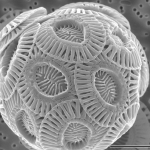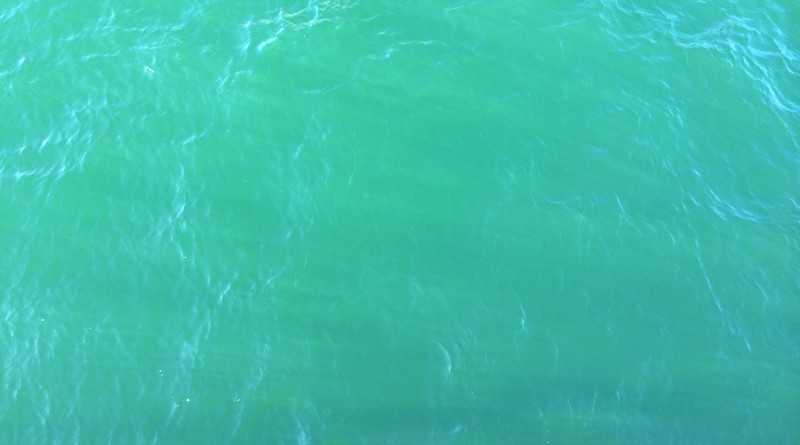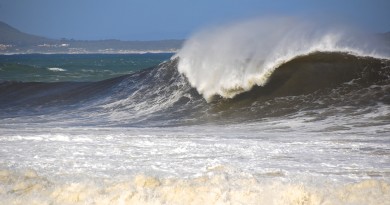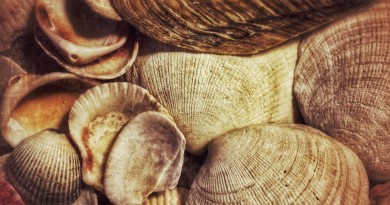Phytoplankton – Without Them We Die
Plankton are some of the most diverse, unusual, and minuscule organisms in the world that are critical to our food supply and some of the latest research suggest that they may be quite sensitive to changes in our climate.
If you were to look at plankton under the microscope you would see a dazzling array of color with varying degrees of transparency and intensity. You would also see sizes and shapes that defy the imagination and appear to have been generated by mathematicians. Plankton are just that weird.
Plankton is a term given to organisms at the bottom of the food chain that drift along in the currents. Others, actively swim about (nektons) or forage on the ocean floor (benthos).
Phytoplankton are plankton that are known to produce their own food through photosynthesis. Since photosynthesis requires visible light phytoplankton will be found in the upper few hundred meters of the water column.
The short video outlines some of the different groups of phytoplankton that we see in nature, from the unusual diatoms that resemble futuristic spaceships to coccolithophores that look armor-plated and ready for war.
Plankton Fuel the World
These tiniest of organisms perform very simple functions, yet they are absolutely critical to our survival as a species since they lie at the bottom of the food chain.
This means that creatures the size of tuna consume smaller fish, and each progressively smaller fish must consume something smaller until the smallest organism is consuming phytoplankton.
Ultimately, the population of planktonic organisms must be large enough to ultimately sustain the global population of whales, tuna, sharks and all the animals at the top of the food chain. Marine scientists have suggested that phytoplankton could be responsible for up to 70% of all the food mass in the ocean.
Phytoplankton are also believed to create between 50-85% of all the oxygen in our atmosphere through photosynthesis. If the oxygen they create is a product of photosynthesis, then they are also contributing to being an efficient carbon sink for carbon dioxide from the atmosphere just as land-based plants absorb carbon dioxide.
Can Plankton Survive Changes in Climate?
The enormous contribution that phytoplankton play in our environment begs one to question how resilient they might be to changes in the ocean.
Marine science points to threats and adaptation.
Research is still relatively new in this field. In general, increasing acidity and temperature of the oceans does not present a favorable change for phytoplankton since higher acidicity means that 1) plankton with carbonate shells will dissolve more readily; and 2) as more carbonic acid is present in the water, there are fewer free carbonate ions available for building shells.

Increases in temperature can also lead to a decrease in the ability for oceans to retain dissolved oxygen and this condition is deadly to marine life. Warmer water also leads to less vertical mixing of the water column that would normally bring nutrients to the surface.
Most research projects a decline of phytoplankton between 2-20% over the next century.
However, like many organisms, some species of plankton might adapt to higher acidicity in the oceans. In fact, this effect has been observed to a certain degree in lab experiments that show some varieties of phytoplankton developing mechanisms to avoid acidosis within their cells, or growing larger and thinner shells.
Whether this is a good survival mechanism remains to be seen.
There are limits as to how fast any organism can adapt to a changing environment. Should the environmental stress be too high, then phytoplankton might not be able to adapt quickly enough leading to population collapses similar to some of the great extinctions in the geologic record. The Permian-Triassic extinction lead to perhaps as many as 96% of all marine species disappearing forever.
A phytoplankton population collapse can ripple all the way up the food chain and the implications are scary.





Hello ~ Awesome content ~ Thanks
I’d like too thank you foor the efforts you have put in penning
this site. I’m hoping to view the same high-grade content fdom youu later on as well.
In fact, your creative writing abilities has encouraged
me tto get mmy very own site now 😉